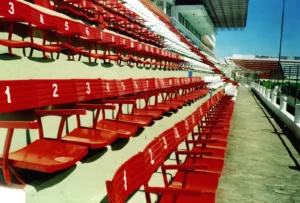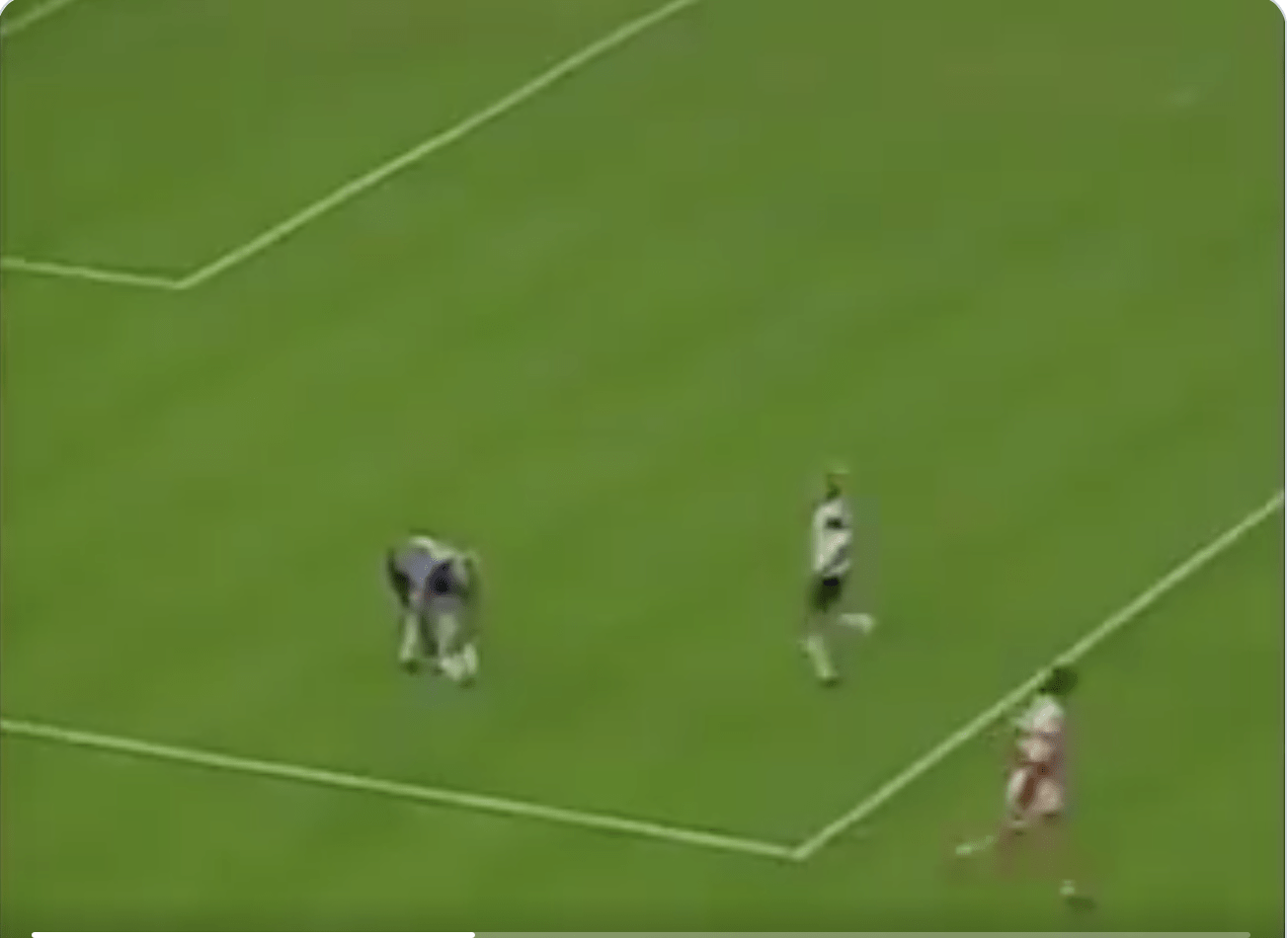The introduction of the back-pass rule in the early 1990s
As early as 1981, at the Annual General Meeting of The IFAB, the issue of the back-pass and wasting time was discussed.
In this year, the committee was of the opinion that it was not a waste of time, as the opposing players had the right to intervene. This opinion changed significantly during and after the 1990 World Cup. In 1991, The IFAB allowed FIFA to prohibit the back-pass as an experiment at the 1991 U17 Men’s World Cup. The experiment was successful and since the 1992/93 season, the deliberately back-pass is prohibited.
„On any occasion when a player deliberately kicks the ball to his own goalkeeper, the goalkeeper is not permitted to touch it with his hands. Otherwise, the match will be restarted with an indirect free kick from the place where the offense occurred for the opposing team.“ (Minute of The IFAB, 1992)
During the 1992 European Championship the back-pass was still allowed. The Danish goalkeeper, Peter Schmeichel, made intensive use of it at that time. Those who have followed the European Championship certainly remember very well.
After the European Championship, starting in the season 1992/93, the back-pass was forbidden.
Strange Superpower
„Goalkeepers have this strange superpower, which they use to ruin everyone else’s fun.“
This phrase is taken from the very readable report „Unsure Footing“ by „99 % invisible“, which, among other things, deals with the back-pass rule.
And for those of you who know the Dutch, the wonderful report by Michiel de Hoog for DeCorrespondent is highly recommended: Hoe Sepp Blatter (ja, die Sepp Blatter) het voetbal redde van de vervelingsdood.
The back-pass rule since 1997
Until 1997, the interdiction of the back-pass was not included in the text of the law, but was annexed to Law 12 as a decision.
„If a player pass the ball to his own goalkeeper for a deliberate trick in order to circumvent Article 5 (c) of Law XII [= „[goalkeeper] touches the ball with his hands after it has been deliberately kicked to him by a team-mate“], the player will be guilty of ungentlemanly conduct. The game will be restarted with an indirect free kick from the place where the player committed the offence. (Minute of The IFAB, 1993)
In the process of revising the Laws of the Game in 1997, the back-pass rule was reworded.
„It is added that a player using a deliberately trick to circumvent the Law while he is taking a free kick, is cautioned for unsporting behavior and shown the yellow card. „Subsequently, the free kick is retaken.“ (Minute of The IFAB, 1997)
The subsequent revisions of the Laws of the Game also reworded the back-pass rule, but did not change the content. Since 2008 it is part of the legal text.

The goalkeepers‘ permitted handball
A small excursion to the permitted handball of the goalkeeper:
- 1871-1887: the goalkeeper may touch the ball with the hands anywhere, provided it is to protect the own goal
- 1887-1912: The goalkeeper is allowed to touch the ball with the hands in the own half
- Since 1912: The goalkeeper is allowed to touch the ball with the hands in the own penalty area
But it was not only limited where the goalkeeper was allowed to do the handball. The duration was also subject to conditions.
- 1886-1931: Maximum two steps
- 1931-2000: Maximum four steps
- Since 2000: Maximum of six seconds (all this is not interpreted hard)
Is lobbing a back-pass?
In the summer of 2019, the back-pass rule was discussed again because the goal kick was changed. Since the season 2019/20, the ball is in play as soon as it has been kicked and moves. This led to the trick that field players performed a short double pass with the goalkeeper in front of the goal area by lobbing the ball.
God knows this trick is not new, but has been forgotten
Until 1938 the ball also did not have to leave the penalty area to be in play. It only needs to turned once around its own axis. In those days, the ball was lobbed from the player at the goalkeeper or vice versa.
If when discussing laws the evolution of these laws is always in mind, one could have known that this trick would be reinvented.
The only new thing: In 2019, the back-pass rule exists. And therefore we had discussions which 1938 were not yet a necessity.

